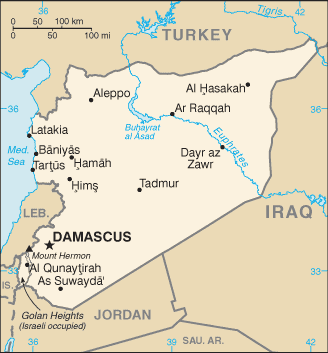Car bombs, seized US weapons, nearly an endless supply of foreign recruit. There are a lot of things which are cited as the reason for ISIS’s success on the ground in Iraq and Syria. Kurdish forces, who have been fighting ISIS repeatedly, see a different key for ISIS.
 They are called Inghemasiyoun, ISIS shock troops who are described as both disciplined and fanatical, willing to fight to the death at a moment’s notice, and to blow themselves up rather than accept defeat. These fighters pledge “victory or martyrdom” upon their arrival at the battlefield, and they mean it.
They are called Inghemasiyoun, ISIS shock troops who are described as both disciplined and fanatical, willing to fight to the death at a moment’s notice, and to blow themselves up rather than accept defeat. These fighters pledge “victory or martyrdom” upon their arrival at the battlefield, and they mean it.
ISIS tends to use a suicide bombing or two as a prelude to a full-scale offensive, putting the opposing troops into disarray, and then throwing these shock troops onto the front lines to wrap things up. They’ve gotten extremely good at it.
This is doubly a problem for their opponents on the ground from a morale perspective, as many of the other forces aren’t willing to die unconditionally at a moment’s notice, and knowing that the enemy is only weighs on their already sketchy morale.
This is the key to battles like the one for Ramadi, where Iraqi forces outnumbered ISIS by a great amounted, but routed in the face of suicide bombings and fanatical offensives. Iraqi officials may gripe about the troops disobeying orders by fleeing the battle, but most armies in the world simply don’t have the unconditional loyalty that ISIS commands, and expecting their troops to mirror ISIS in their disregard for their own safety is just not realistic.


